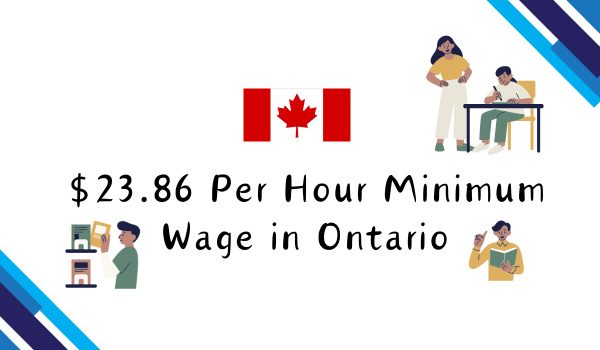
$23.86 per hour minimum wage in Ontario
The minimum wage in Ontario, which represents the lowest hourly pay rate that employers are legally obligated to provide to their employees, is scheduled to rise from October 2024. This hike affects various categories of workers, including students, general workers, and those in liquor services. Let's delve into the specifics of this wage increase.
Ontario's current minimum wage for general employment stands at $16.55 per hour. However, starting October 2024, this rate is set to increase to $17 per hour. Likewise, the minimum wage for students under the age of 18 will see a bump from $15.60 to $17 per hour. Additionally, workers in liquor services, such as bartenders and servers, will also witness a raise to $16.55 per hour.
This adjustment in minimum wage rates is a response to various factors, including inflation and the rising cost of living. Typically, such changes aim to ensure that workers receive fair compensation that aligns with economic conditions. It's worth noting that the minimum wage serves as a baseline, and many employers may offer higher wages depending on the nature of the job and other factors.
The Ontario government periodically reviews and adjusts minimum wage rates to reflect changes in economic conditions and to uphold fair labor practices. This ensures that workers are adequately compensated for their contributions to the workforce.
The announcement of the minimum wage increase comes amidst ongoing efforts by policymakers and stakeholders to address income inequality and promote financial stability for workers. By raising the minimum wage, policymakers aim to enhance the standard of living for workers and their families.
It's important to understand that minimum wage laws vary across jurisdictions, and each province or state may have its own regulations governing wage rates. In Ontario, the government sets the minimum wage based on factors such as inflation, cost of living, and prevailing economic conditions.
Employers in Ontario are required by law to adhere to minimum wage regulations and provide their employees with the mandated hourly rate. Failure to do so can result in penalties and legal consequences for employers.
The increase in minimum wage rates will have a tangible impact on workers across various industries in Ontario. For many individuals, especially those in low-wage jobs, this raise can significantly improve their financial well-being and quality of life.
In addition to benefiting individual workers, the minimum wage increase can also have broader economic implications. By putting more money into the hands of workers, it can stimulate consumer spending and contribute to overall economic growth.
Overall, the decision to increase the minimum wage in Ontario reflects a commitment to ensuring fair compensation for workers and addressing income inequality. As the implementation date approaches, both employers and workers should familiarize themselves with the new wage rates and ensure compliance with relevant labor laws.















